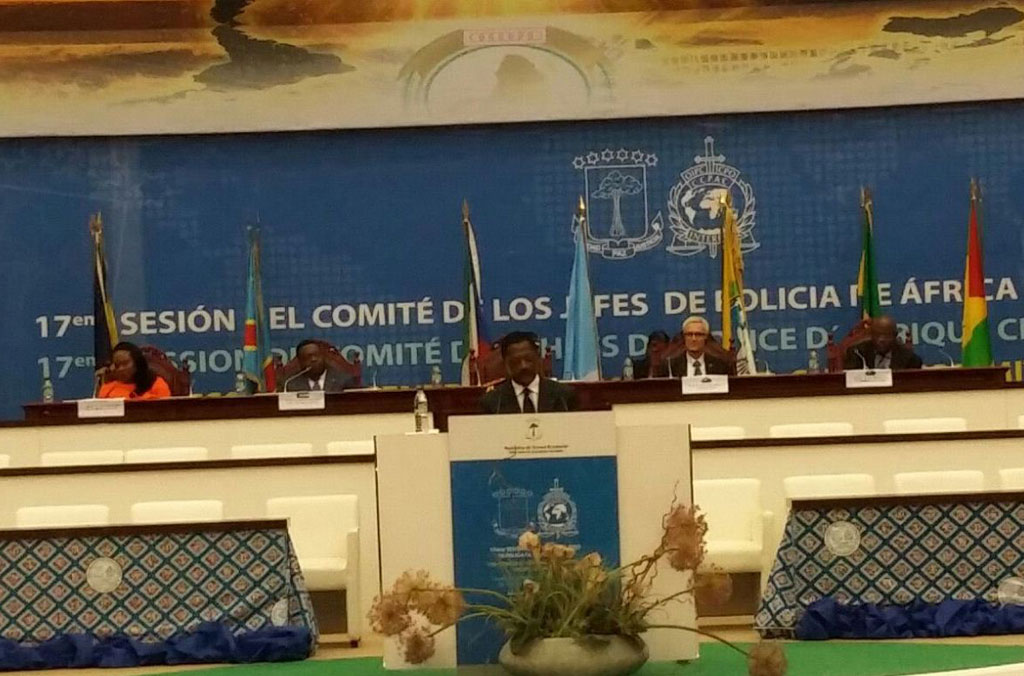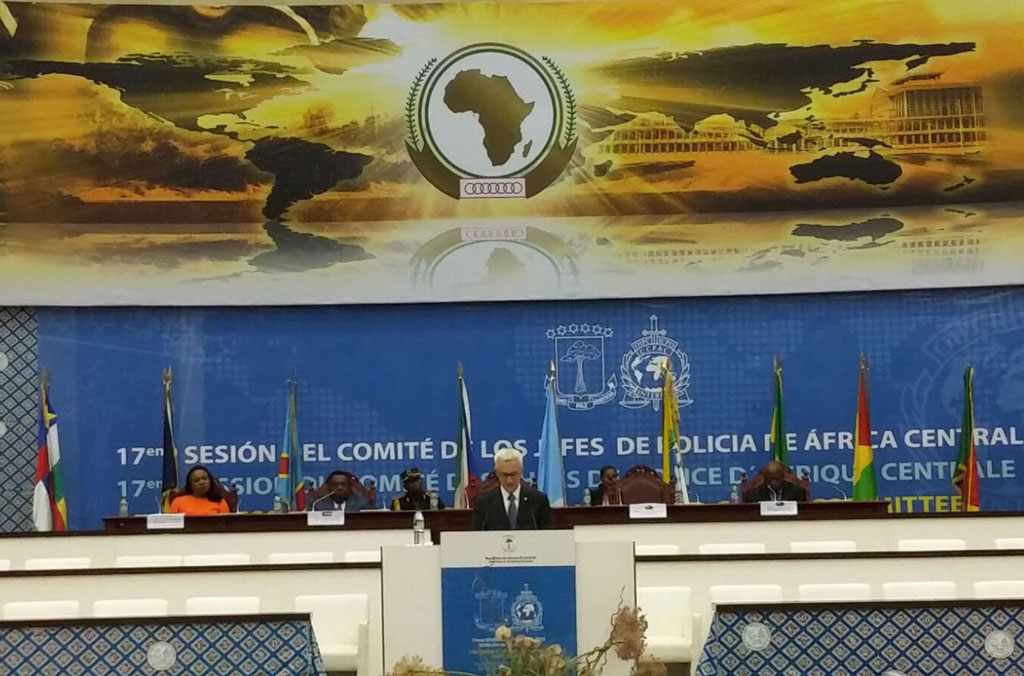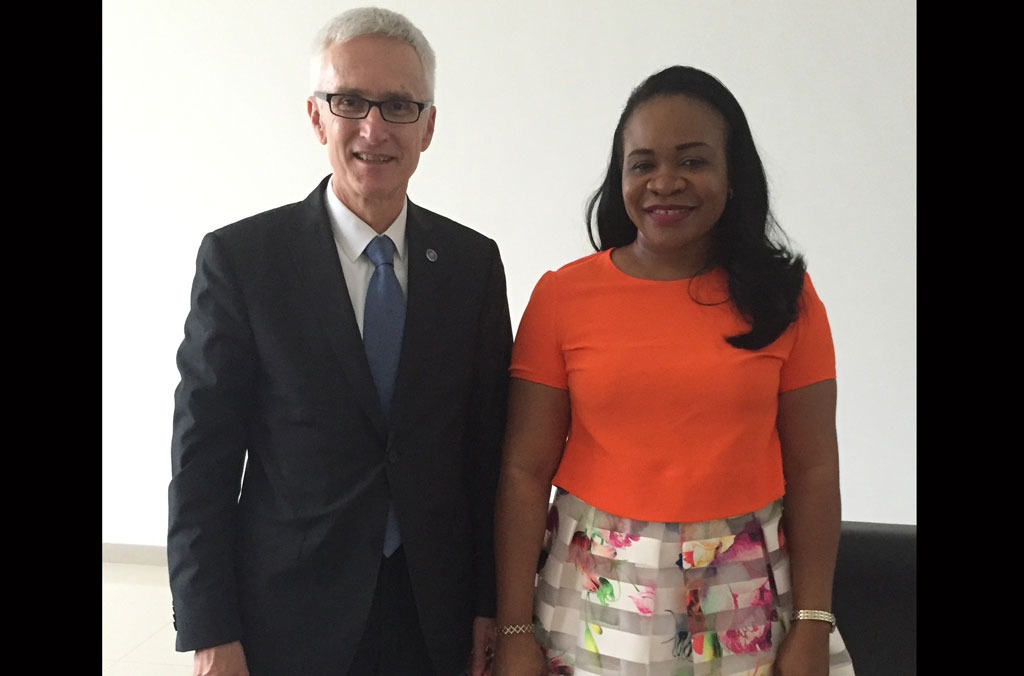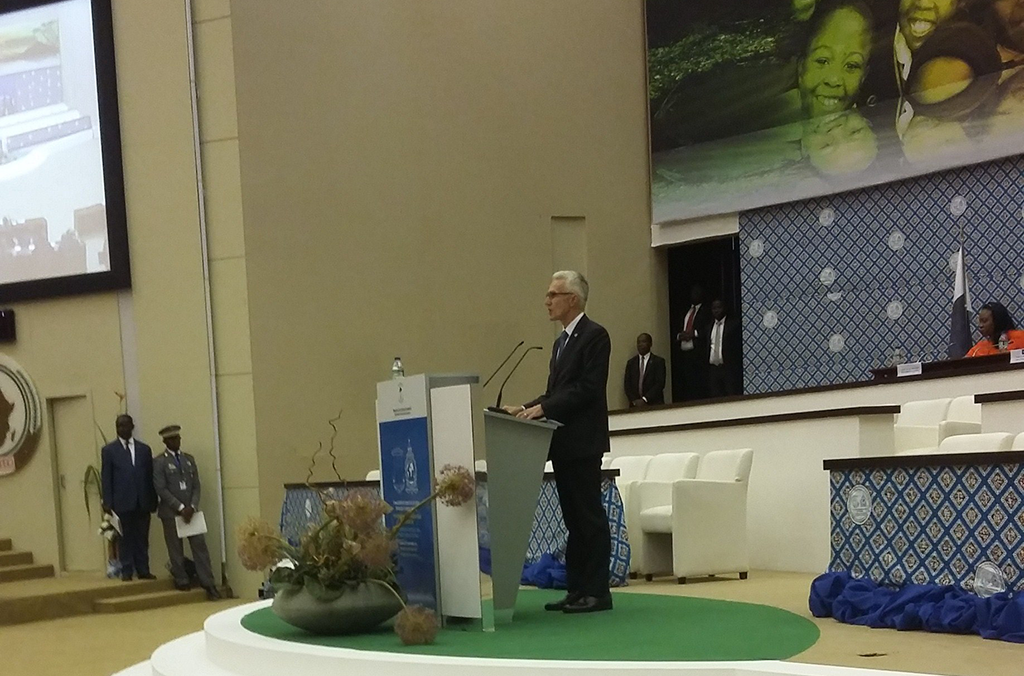MALABO, Equatorial Guinea – INTERPOL Secretary General Jürgen Stock has said that regional law enforcement cooperation in Central Africa is interconnected with security efforts across Africa and beyond.
Speaking at a meeting of security ministers from countries of the Central African Police Chiefs Committee (CAPCCO) which was officially opened by Prime Minister of Equatorial Guinea, Francisco Pascual Obama Asue, the Head of INTERPOL said crimes in one region can affect other parts of Africa and outside the continent, and vice versa.
“In the face of global threats, Central Africa is impacted like other regions on the continent or around the world. INTERPOL’s unique global presence and reach are crucial to help link investigations outside the region and continent. For policing to be effective, we must look to provide a global response to regional threats,” said Secretary General Stock.
INTERPOL’s recently opened Special Representative Office to the African Union in Addis Ababa marks a further step in its engagement with Africa and its security needs.
Established in 2009, its Regional Bureau in Yaoundé, Cameroon, also acts as a focal point for international police cooperation across Central Africa and with each of the Organization’s 190 member countries, further underlining INTERPOL’s long-term commitment to the region.
“No country or region can deal with the challenges of transnational crime alone. We must work closely together. Africa is committed to fighting terrorism and organized crime, and it is for this very reason that collaboration with INTERPOL is crucial for the national security of African countries,” said Equatorial Guinea’s General Director of National Security, and incoming CAPCCO Chair, José Ondo Ondo Nchama.
Underpinned by INTERPOL’s global programmes on terrorism, organized and emerging crime, and cybercrime, INTERPOL’s global policing capabilities further bolster the global policing architecture – whether in sharing and accessing vital information, or meeting the training and operational needs of frontline officers – to address serious threats.
In 2015 alone, terror attacks by Boko Haram claimed the lives of some 5,700 people in Chad, Nigeria and Cameroon. INTERPOL’s efforts to counter terrorism include the collection and analysis of intelligence on suspected terrorists and groups, and facilitating the exchange of data amongst member countries and other international organizations.
With acts of maritime piracy in the Gulf of Guinea representing some 20 per cent of all global piracy attacks in 2015, INTERPOL is currently implementing Project Agwe in Central and West Africa to enhance the capacity of police to investigate maritime crimes.
Other challenges in Central Africa include the exploitation of natural resources and the illicit trafficking of cannabis, minerals, timber and wildlife.
Elsewhere in Africa, earlier this year drugs, criminals, guns and gold were intercepted in Operation Adwenpa, an INTERPOL border operation in West Africa, with security checks conducted against its databases.
While African countries have also experienced rapid cyber transition, criminal networks in the region have exploited this evolution to commit a range of crimes.
In this respect, enhancing the ability of law enforcement to investigate cyber-enabled human trafficking was the focus of a recent regional training exercise in Kigali organized by the Rwanda National Police and INTERPOL.







